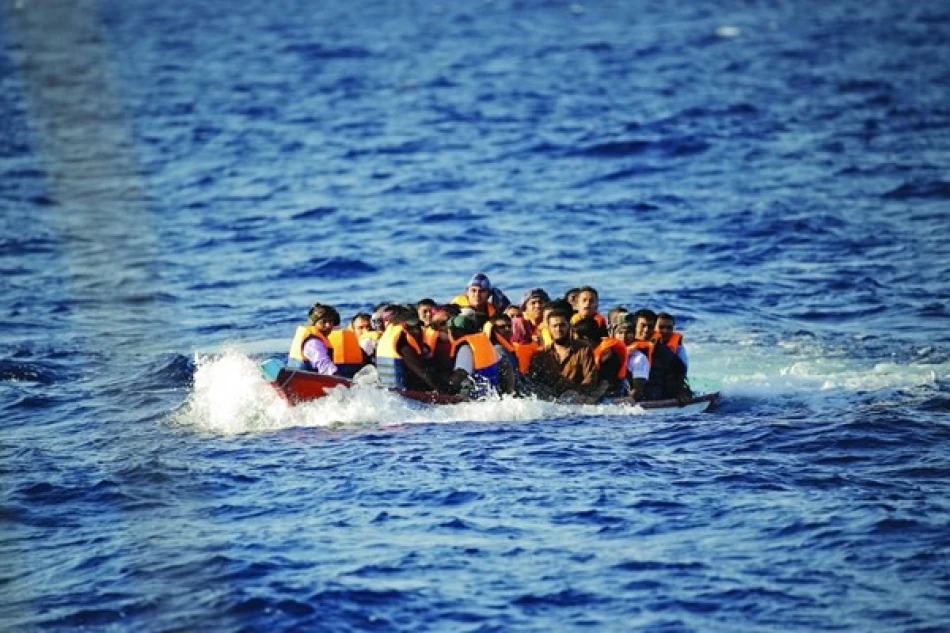
Tragic Migrant Boat Disaster Claims 50 Sudanese Lives
Mediterranean Tragedy Claims 50 Sudanese Lives as Libya Migration Route Proves Deadlier Than Ever
At least 50 Sudanese refugees died when their overcrowded boat caught fire off Libya's coast last Sunday, highlighting the escalating dangers of the Central Mediterranean migration route. The International Organization for Migration confirmed that only 24 survivors received medical assistance from the 75 people aboard, marking one of the deadliest incidents involving Sudanese nationals this year.
The Deadly Journey from Libya's Shores
The rubber dinghy departed from Libya's coastline carrying 75 Sudanese refugees before disaster struck in Mediterranean waters. According to Malik al-Digawi, director of the organization "Reducing Migration and Voluntary Return for Sudanese Communities" in Libya, the vessel caught fire during the crossing, leaving passengers with little chance of survival in the open sea.
Initial reports suggested the boat sank near Greek waters, though the International Organization for Migration placed the incident closer to Libya's territorial boundaries. This discrepancy reflects the chaotic nature of search and rescue operations across the Mediterranean's busiest migration corridor.
Sudan's Exodus Intensifies Migration Pressures
The tragedy underscores how Sudan's ongoing civil conflict has transformed the country into one of Africa's largest sources of refugees and migrants. Since fighting erupted between rival military factions in April 2023, over 8 million Sudanese have been displaced, with hundreds of thousands seeking refuge in neighboring countries before attempting the perilous Mediterranean crossing.
Libya as the Gateway of Desperation
Libya remains the primary departure point for African migrants attempting to reach Europe, despite the country's own political instability. The absence of a unified government has created a security vacuum where human trafficking networks operate with relative impunity, often using unseaworthy vessels that become death traps in Mediterranean waters.
Sudanese migrants face particular vulnerabilities in Libya, where they encounter discrimination, arbitrary detention, and exploitation while waiting for opportunities to cross to Europe. Many resort to increasingly dangerous routes as Libyan authorities, under pressure from the European Union, have intensified patrols and interceptions.
A Pattern of Mediterranean Disasters
This latest tragedy fits a grim pattern of escalating fatalities on the Central Mediterranean route, which the UN has labeled the world's deadliest migration corridor. The International Organization for Migration recorded over 2,500 deaths and disappearances in the Mediterranean in 2023, with the Libya-Italy route accounting for the majority of casualties.
The use of overcrowded rubber dinghies, like the one that caught fire on Sunday, has become standard practice among smuggling networks seeking to maximize profits while minimizing their own risks. These vessels, never designed for open-water crossings, frequently suffer mechanical failures, fires, or capsizing in Mediterranean conditions.
European Policy Implications
The continued loss of life raises uncomfortable questions about European Union migration policies that prioritize border security over humanitarian concerns. The EU's strategy of supporting Libyan coast guard interceptions has effectively trapped migrants in detention centers notorious for human rights abuses, potentially pushing desperate refugees toward even riskier crossing attempts.
The human cost of this approach is becoming increasingly difficult to ignore. Each tragedy like Sunday's fire generates temporary outrage but fails to produce meaningful policy changes that might prevent future disasters.
Limited Rescue Capacity
The Mediterranean's vast expanse and the decline in dedicated search and rescue operations mean that many disasters go undetected until survivors reach shore or bodies wash up on beaches. The 24 survivors from Sunday's incident were fortunate to be found and provided medical assistance, but countless others disappear without trace in the same waters.
As Sudan's crisis shows no signs of resolution and Libya remains unstable, the flow of desperate migrants willing to risk everything for a chance at safety in Europe seems likely to continue. Without significant changes to either regional stability or European migration policy, the Mediterranean will keep claiming lives at an unconscionable rate.
Most Viewed News

 Layla Al Mansoori
Layla Al Mansoori






